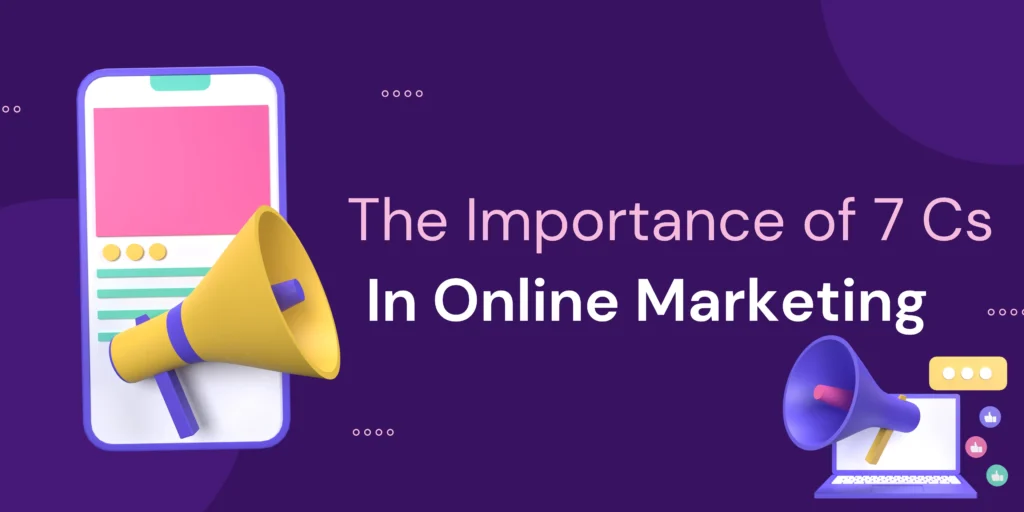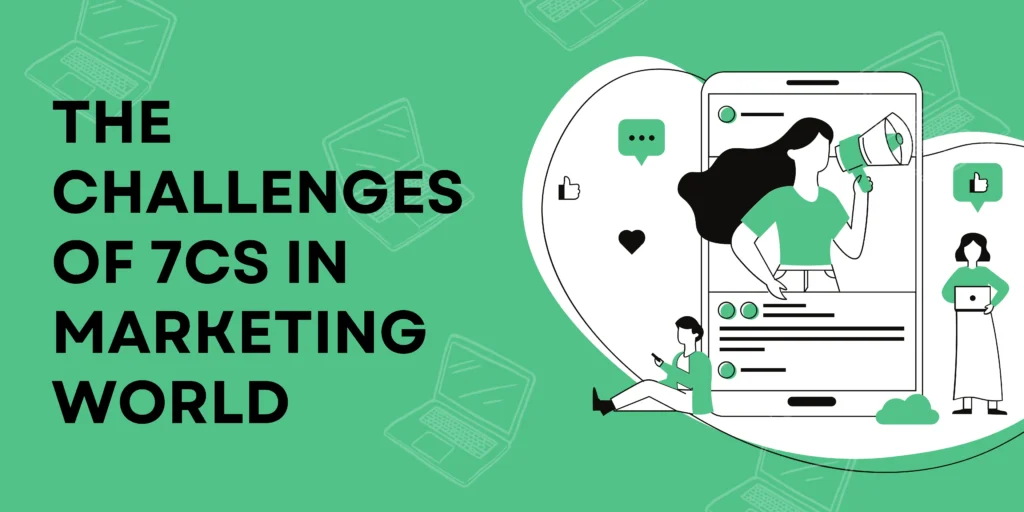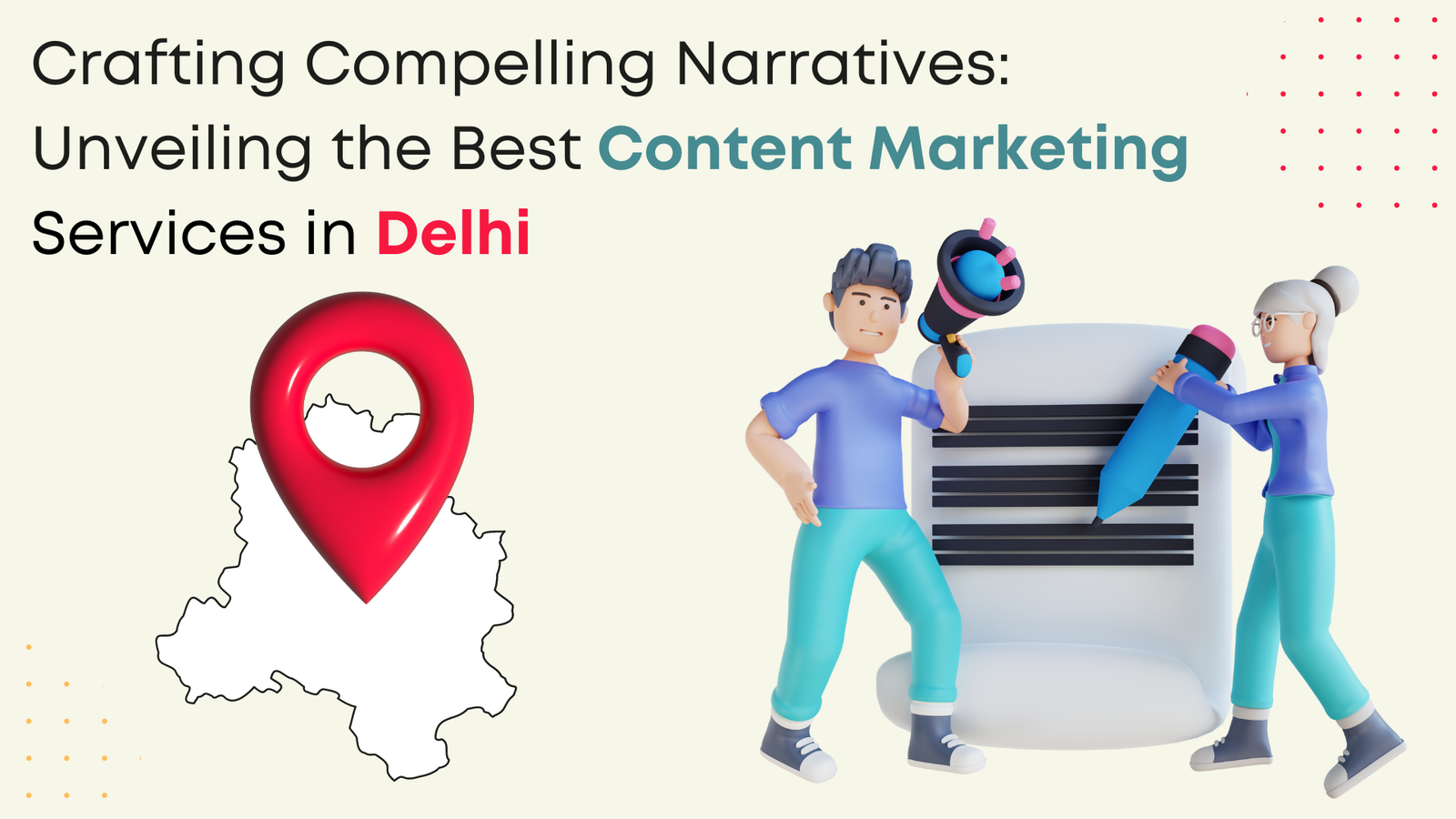Begin your digital marketing journey by learning about the 7 Cs: Content, Context, Connection, Community, Customization, Communication, and Conversion. These elements work together to create effective campaigns, much like a skilled orchestra conductor. Consider a fitness app that customizes workout plans based on user preferences, fosters a sense of community (Community) through shared achievements, and seamlessly guides users from engagement (Connection) to conversion (Conversion). Let’s look at the advantages, disadvantages, and significance of these 7 C’s of Digital Marketing with Techsharks, the best digital marketing agency in Delhi.

7c of Digital Marketing Importance in Digital Marketing
Let’s delve into the significance of each “C” and unravel how they collectively contribute to the success of modern digital marketing endeavours. Here are 7c of digital marketing importance in digital marketing:
Content
Content can take many forms, including blogs, articles, videos, podcasts, and social media posts. It is not only about quantity but also about quality. Likewise, high-quality, valuable content has a greater impact on the audience. Visual content such as infographics and images improves engagement and comprehension.
Context
Contextual marketing takes into account the audience’s circumstances and preferences. Data analysis is used to deliver personalized content based on user behaviour and demographics. Similarly, the importance of timing cannot be overstated; delivering the right content at the right time maximizes its impact.
Connection
Making a connection entails establishing an emotional bond between the brand and the audience. Likewise, social media is a powerful tool for connecting people through genuine interactions. Storytelling is essential; emotionally charged narratives leave an indelible impression.
Community
Communities can exist on social media, forums, or dedicated platforms where users have similar interests. In addition, brands can help foster community by hosting events, webinars, or discussion forums. Engaging with the community, listening to feedback, and actively participating all contribute to the development of trust.
Customization
Customization entails tailoring experiences based on user preferences and behaviour. Predictive customization goes beyond personalization; it anticipates user needs. In addition, machine learning and data analysis are critical in providing personalized experiences.
Communication
Clear, transparent, and two-way interactions are required for effective communication. In addition, social media platforms provide direct channels of communication; responsiveness is essential. Brand communication is strengthened when messaging is consistent across multiple touchpoints.
Conversion
Conversion optimization focuses on converting prospective customers into paying customers. A/B testing, user journey analysis, and CTA refinement all contribute to effective conversion strategies. Likewise, understanding the customer’s decision-making process is critical for conversion optimization.
Incorporating these developments into a digital marketing strategy emphasizes the importance of a comprehensive and user-centric approach. All these 7 C’s of digital marketing help to create a seamless and engaging customer experience, which leads to conversions and brand loyalty.

7c of Digital Marketing Benefits and Challenges
Since this guide is all about 7c of digital marketing benefits and challenges, we need to know them in great detail:
Content
Benefits:
- High-quality content attracts and engages audiences, promoting brand loyalty.
- Search engines prioritize useful content, which results in higher rankings.
- Brand Authority: Consistent, informative content positions the brand as an industry authority.
Challenges:
- The digital space is crowded, making it difficult to stand out.
- Maintaining a consistent flow of high-quality content takes time and effort.
- Keeping up with changing content consumption trends can be difficult.
Context
Benefits:
- Personalization improves the user experience by tailoring content to the user’s context.
- Delivering relevant content at the right time boosts conversion rates.
- Users value content that is relevant to their context and needs.
Challenges:
- Concerns about data privacy: Collecting and utilizing user data for context must comply with privacy regulations.
- Inaccurate data can lead to incorrect interpretation of user context.
- Finding the right balance between being intrusive and irrelevant.
Connection:
Benefits:
- Creating a strong connection with customers fosters loyalty.
- Strong communities frequently result in positive word-of-mouth marketing.
- Emotional connections create long-lasting impressions and customer attachment.
Challenges:
- Concerns about Authenticity: Making genuine connections necessitates genuine efforts.
- Negative feedback in open forums can have an impact on brand perception.
- It can be difficult to consistently foster connections across platforms.
Community:
Benefits:
- User-Generated Content: Communities help to create user-generated content.
- Communities provide valuable insights into customer preferences and trends.
- Active communities frequently become brand advocates, promoting the brand.
Challenges:
- Active moderation is required for managing community interactions.
- Balancing diverse opinions within a community can be difficult.
- Likewise, it can be difficult to maintain community engagement over time.
Customization:
Benefits:
- Customized experiences result in increased conversion rates.
- Customer satisfaction is increased when individual preferences are met.
- Personalized services give you an authoritative advantage.
Challenges:
- Handling and storing personalized data necessitates stringent security safeguards.
- Implementing and maintaining customization can be time-consuming and costly.
- In addition, it is critical to balance personalization with privacy concerns.
Communication
Benefits:
- Transparency of the brand matters. Similarly, effective communication fosters transparency.
- Direct channels of communication allow for valuable customer feedback.
- Moreover, effective crisis management requires open communication.
Challenges:
- Excessive communication can result in an overload of information.
- To avoid misinterpretation, clear communication is essential.
- Handling negative feedback in public requires deftness.
Conversion
Benefits:
- Effective conversion strategies have a direct impact on revenue.
- Turning leads into customers helps to build long-term relationships.
- In addition, increased conversions result in a higher ROI on marketing investments.
Challenges:
- Understanding User Behavior: It can be difficult to predict user behaviour for effective conversion optimization.
- Standing out in a competitive digital landscape necessitates strategic optimization.
- Dependence on Technology: Relying on various tools and technologies for conversion tracking can present difficulties.
Understanding the advantages and disadvantages of 7 C’s of digital marketing allows businesses to develop strategies that capitalize on the advantages while addressing potential drawbacks.




